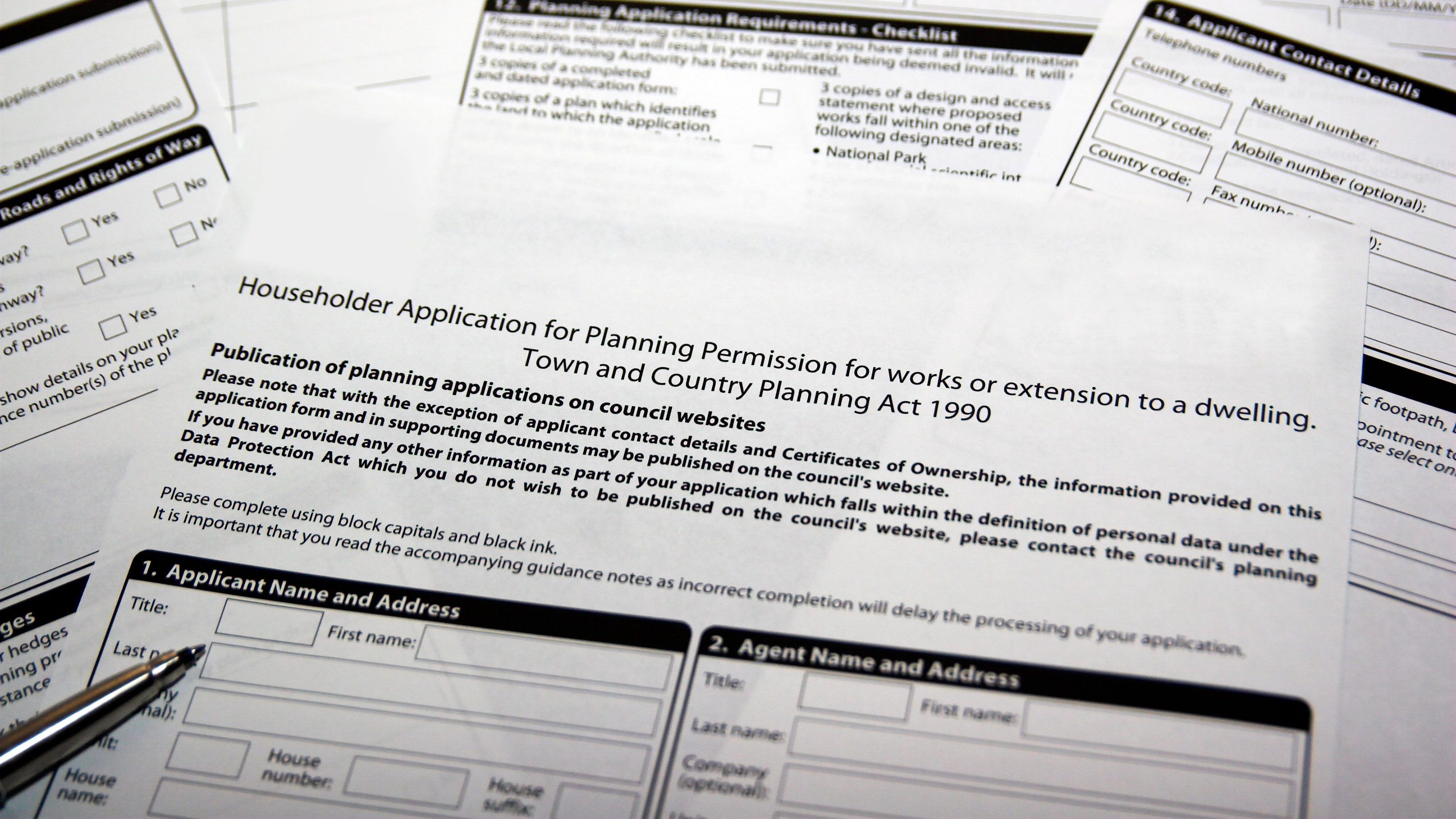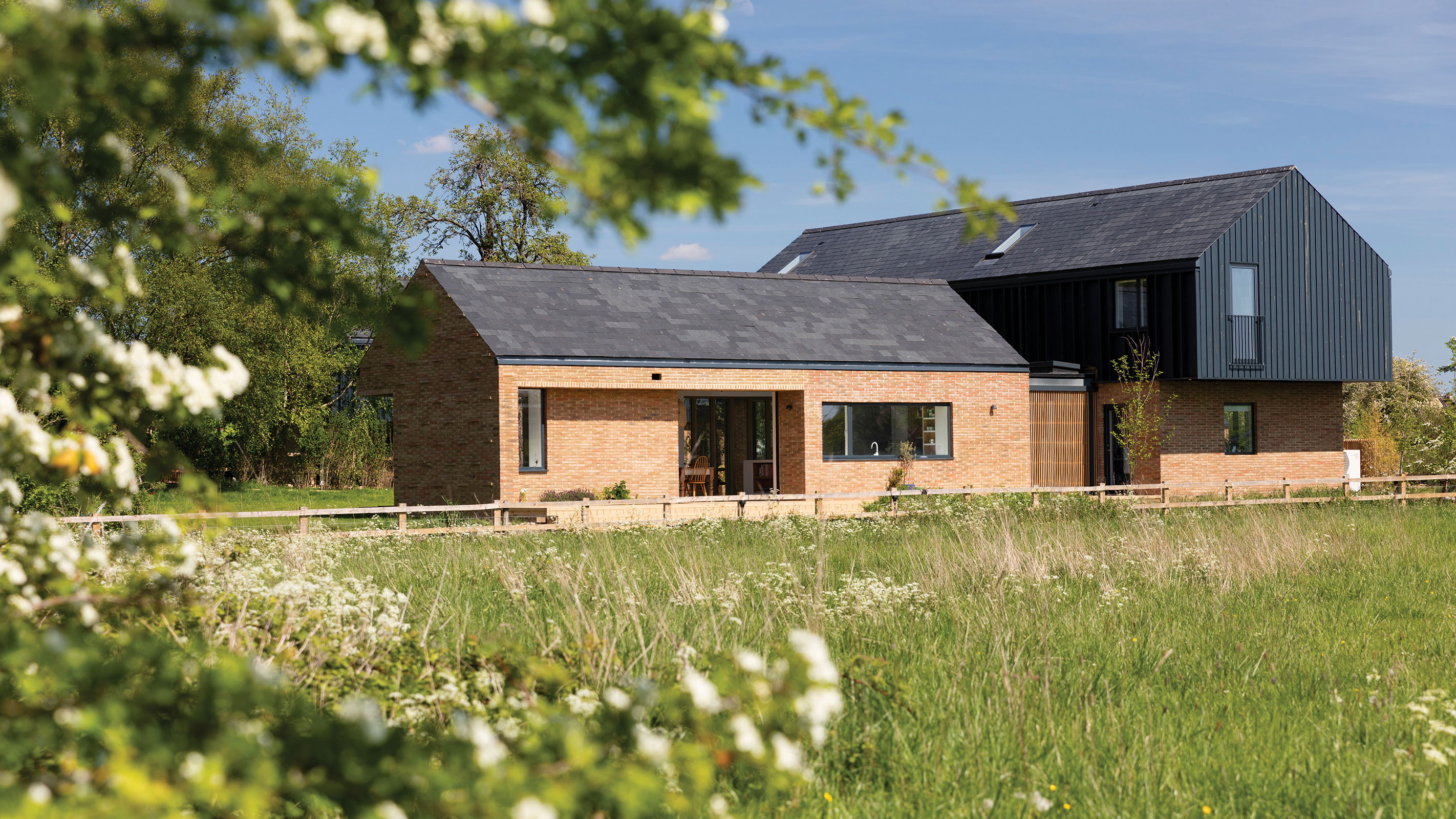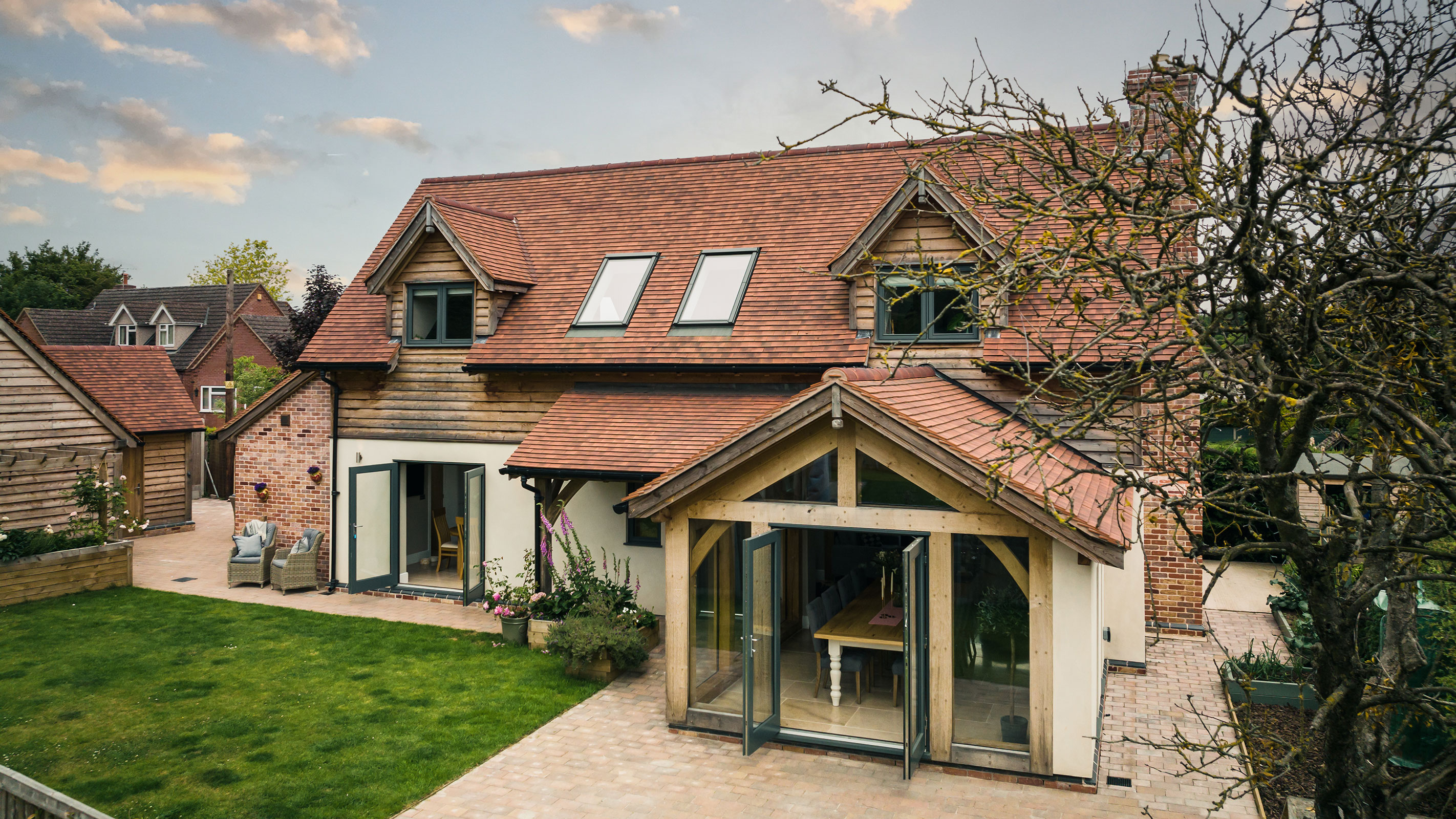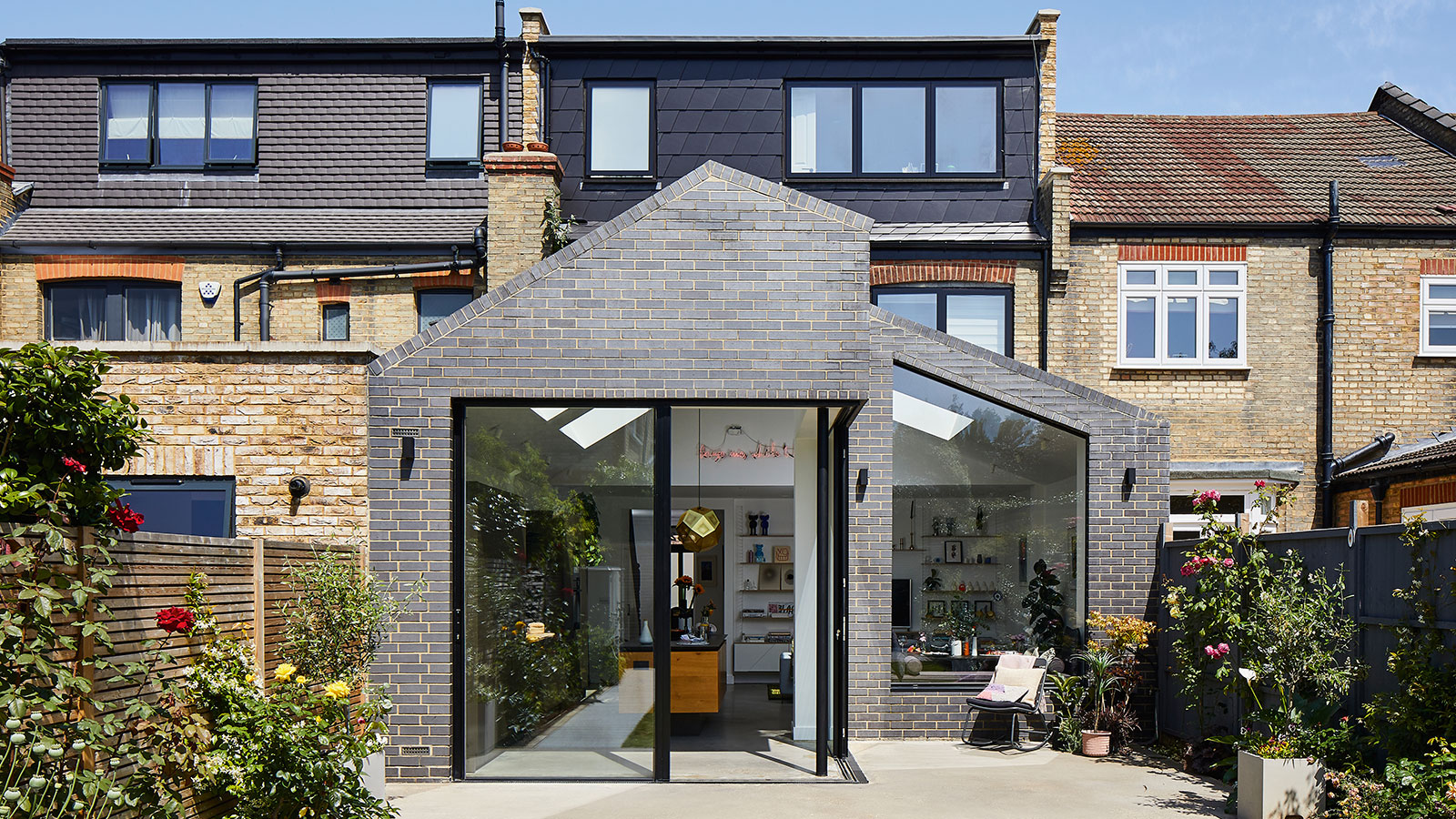
Bring your dream home to life with expert advice, how to guides and design inspiration. Sign up for our newsletter and get two free tickets to a Homebuilding & Renovating Show near you.
You are now subscribed
Your newsletter sign-up was successful
Exactly how much does planning permission cost? Working out if you can afford the construction costs of your dream build is a crucial part of the process and it’s one many people will consider at the very beginning. However, another concern for anyone looking to build or extend their home is the cost of obtaining any necessary planning permissions.
In the world of planning permission, planning application fees were introduced so that people who want to apply for consent, rather than taxpayers in general, meet the costs incurred by local planning authorities in deciding planning applications. That said, local councils’ other planning services also get funds from council tax, retained business rates, and central government grants. These other services include planning policy making, dealing with appeals and taking enforcement action against people who don’t play by the rules.
While the submission fee for making a planning application may seem like a significant expense, it is often just a small portion of the total cost of gaining planning permission. Design fees and the costs of relevant surveys can all add to the cost of gaining planning permission. And, of course, planning consultant fees are a factor, but their expertise will usually save you wasting unnecessary money elsewhere and, of course, a good planning consultant will improve the chances of you actually getting the consent you want, which is your ultimate objective.
Overall, gaining planning permission can be a complex and costly process, but with proper planning and preparation, it is usually possible to navigate the process and obtain the necessary permissions to build or improve your home, without having to break the bank.
Here, we take a closer look at how much planning permission costs in England, Wales, Scotland and Northern Ireland, as well as other related costs, plus ways to save money.
How much does planning permission cost in the UK?
The cost of gaining planning permission varies depending on the type of application and which nation of the UK you are in.
Before getting started, do familiarise yourself with all the things you can do without planning permission as you may well find you don't need to apply for consent at all.
Bring your dream home to life with expert advice, how to guides and design inspiration. Sign up for our newsletter and get two free tickets to a Homebuilding & Renovating Show near you.
The planning application fee rates paid to submit an application are set by the national governments of the UK, but the system is complex, with different amounts due for different types and sizes of project, so it’s the local council that decides on the actual fee due for a specific application, based on the nationally set rules, and the fee is paid to them.
Householder planning applications cover a range of works to a single dwelling house and/or within its curtilage, including any loft conversions, extensions, new fencing or outbuildings that aren’t covered by permitted development rights.
In England, the standard fee for a householder planning application is £206; in Wales it is £230; in Scotland, it is now set at £300; and in Northern Ireland, the fee is slightly lower, at £291.
What are new home application fees?
The costs of submitting a planning application for a new home can vary depending on the scale and nature of the proposed development — planning permission for extensions, for example, could be quite different to those for a new build.
An outline application is one where not all the details of the proposal are put forward, i.e. some are left for a later stage. In England, the fee for an outline planning application is £462 for each dwelling or if the number of dwellings is not specified, per 0.1 hectare, or part thereof (i.e. 0.11 hectares would cost £924).
It is important to note that if you apply for and get outline planning permission, you will then need to apply to get the reserved matters approved (i.e. the details of the proposal that were not included in the outline application). You will need to pay an additional £426 per dwelling for this. Alternatively, you could go straight for a full detailed planning application, for which the fee is a single £426 per dwelling. In Wales, the fee for a full detailed planning application for a new dwelling is £460 per dwelling, while for an outline planning application, it is £460 per 0.1 hectare or part thereof and then the reserved matters would be another £460.
Although the total fee amount charged is lower if you take this direct one-step option, you have to submit a fully worked-up architectural design straight off, which itself will cost a lot more than the submission fee. If you are confident that the principle of a new dwelling on the site will be approved, then going straight for a full details application will save you the second £426. If not, then you’d be risking the much greater design costs going to waste if the council does not agree that a house can be built on that site.
In Scotland, the fee for a planning application for a new dwelling is £600. There is no outline consent option available here but a permission in principle can first be applied for instead, costing £600. In Northern Ireland, the fee for a full details application for a single dwelling is £868. It’s £433 for an outline application and the reserved matters approval application would be another £433.

What other planning permission fees are there?
While the fees for planning applications are a significant cost for some, there are many other expenses involved in obtaining planning permission. One of the biggest outgoings is the cost of designing and preparing plans, and the other supporting materials such as a design and access statement.
It is usually always best to hire a planning consultant to help with all this. The professional fees for a planning consultant to help with a planning application start at £1,500, but will depend on the complexity of the project, the number of supporting documents needed and the amount of persuading needed to get you
the consent you want.
Where they are needed, commissioning other documents, such as ecological surveys, a tree survey, a topographical survey or a flood risk assessment, can also add to the overall cost, but a good planning consultant will help you find, shortlist and brief the appropriate professionals to do this work, in a cost-effective way.
A simple tree survey will cost from about £500. A preliminary ecological appraisal and report will probably cost between £900 and £1,500. Topographical surveys cost from as little as £400 but obviously go much higher if a large amount of land is to be surveyed. These costs vary greatly from supplier to supplier, though, so it’s a good idea to source at least three competitive quotes.
Even after planning permission has been granted, there may be additional costs involved in discharging any conditions imposed by the decision maker. This may involve submitting further documents and paying the associated additional fees. It’s worth noting that discharging planning permission conditions can be a lengthy process, and it’s important to plan for this when budgeting for your development.
Can I save money on planning application fees?
While the cost of gaining planning permission can be substantial, there are some ways to save money. For example, ensuring that you are happy with plans as much as possible before submitting the application can help to avoid the need for subsequent non-material amendments, which would require an additional fee. Additionally, discharging planning permission conditions in a batch rather than one by one will save money, as the fees for these are per submission, not per condition.
It’s also worth noting that some local planning authorities offer discounts or fee waivers for certain types of applications, such as those for community or non-profit projects. Be sure to check with your planning consultant to see if you may be eligible for any discounts.
In England, a slightly cheaper alternative to an outline application is a permission in principle application which, as the name suggests, allows for the principle of a dwelling on the site in question to be decided, but nothing else. The fee for this in England is £402 for each 0.1 hectare, or part thereof. In Scotland the fee is £600. It is not available in Northern Ireland or Wales. If you do go down this route and get permission in principle agreed, then the full details of the project will also then need to be approved before work can start. This is equivalent to a reserved matters approval and costs the same, but it’s called the technical details consent stage if it follows a permission in principle approval.
Another way to save money is to be careful about exactly where you choose to draw your red line site boundary. You may not have a choice, but if you do, the amount of land it covers could be decisive in what other, potentially expensive, surveys would be needed. Each council has its own land area size thresholds for these surveys, so hiring a good planning consultant to advise on this could end up saving you more money than their fee.

How long does planning permission take?
Another matter to consider comes after your application has been submitted.
The council will have a fairly soft ‘target’ of deciding it within eight weeks, but if it gets near to that and they have a backlog, they may ask you for an extension to this deadline. It might seem harmless to agree to this, and you may not want to annoy the planning officer deciding your case, so it’s understandable that the inclination might be to agree to it.
However, some applications drag on so long that they go over the longer 26-week planning guarantee deadline set by the national government. If this happens you are entitled to a full refund of your submission fee, but only if you’ve not agreed to any extension with the council. So make sure you don’t do so if your application is anywhere near to the 26-week mark, or if your planning consultant says it might go on that long.

Simon Rix is a professional planning consultant. He was a council officer and later an elected councillor before setting up Planix UK Planning Consultants Ltd.
Simon Rix is a professional planning consultant, who began his career working in local government in the 1990s. He was a council officer and later an elected councillor, so he knows how the planning system works from both sides. He went on to set up Planix.UK Planning Consultants Ltd; a consultancy company that advises self builders, home extenders and those taking on small to medium-sized building projects on planning permission.

